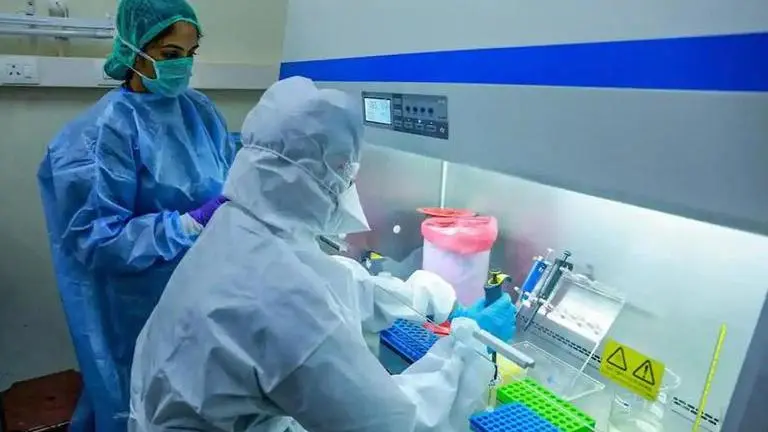Updated 22 June 2020 at 19:23 IST
Indian scientists find COVID-19 genes in wastewater;likely to boost real-time surveillance
Indian scientists detected genetic material of SARS-CoV-2 virus in wastewater, paving way for the use of WBE for real-time surveillance of COVID-19 in India.
- Science News
- 3 min read

In a significant development, scientists from IIT Gandhinagar detected genetic material of SARS-CoV-2 virus in wastewater, paving way for the use of wastewater-based epidemiology (WBE) for real-time surveillance of COVID-19 in India. The WBE approach aims to understand the extent of the disease outbreak in a certain area by measuring the level of the genetic material of the virus in untreated wastewater. In the study conducted by the Indian scientists, samples of wastewater from the Old Pirana Waste Water Treatment Plant in Ahmedabad collected on May 8 and May 27 were examined.
This plant receives up to 106 million litres per day of influent from the Ahmedabad Civil Hospital which is treating COVID-19 patients. An important finding was that all the three SARS-CoV-2 genes- ORF1ab, N and S were found in the wastewater. The scientists also noted that no gene was found in the effluent leaving the plant after treatment. Moreover, they concluded that the genetic material of the virus detected on May 27 was almost 10 times more than that detected on May 8. This broadly corresponded with the trajectory of the growth of COVID-19 cases in Ahmedabad during this period.
Study garners praise
According to the researchers, this study aims at assisting policymakers to formulate or upgrade novel coronavirus surveillance to have a clear picture of a certain phase of the pandemic. They argued that WBE had proved to be an effective tool during polio and Hepatitis A outbreak. The aforesaid study has garnered praise from researchers across the world. For instance, Prosun Bhattacharya of Sweden’s KTH Royal Institute of Technology opined that WBE could be very impactful as it provides correct information about the catchment area and the number of people residing in the vicinity. Similarly, Associate Professor Kyle Bibby, who heads the Global Collaboration on WBE described the study as a "highly valuable contribution" to global SARS-CoV-2 surveillance research efforts.
Advertisement
COVID-19 crisis in India
Currently, there are 4,25,282 confirmed novel coronavirus cases in India out of which 2,37,196 patients have recovered while 13,699 fatalities have been reported. As per the WHO Situation Report 153 dated June 21, 2020, India's cases per lakh population are 30.04 as against the global average of 114.67. 1,43,267 samples were tested were in the last 24 hours. So far, 69,50,493 samples have been tested for the novel coronavirus in 723 government labs and 262 private labs. With 9,440 patients recovering from COVID-19 in the last 24 hours, India's recovery rate surged to 55.77%. At present, there are 1,74,387 active cases in the country.
Advertisement
(Image credits: PTI)
Published By : Press Trust Of India
Published On: 22 June 2020 at 19:23 IST
